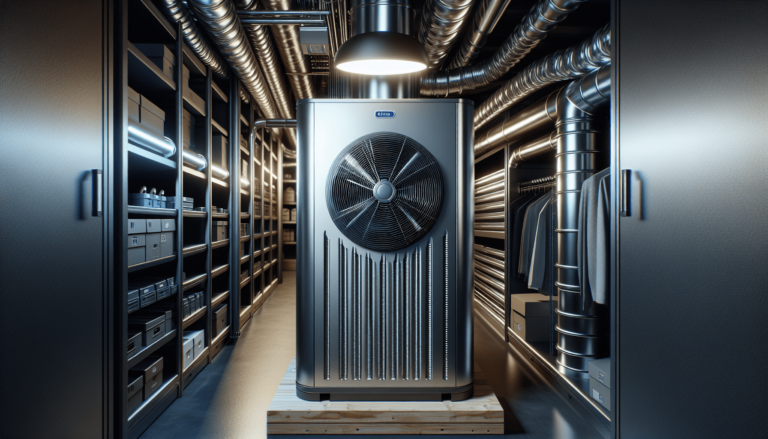

HVAC Services
Get Professional Repairs From The Area's Trusted HVAC Technicians. Ask About Our Services! We Offer Professional Heating & Cooling System Repairs And Guarantee Long-Lasting Results.
Got Question? Call us: (850) 678-2665Financing
Commercial HVAC: Meeting Regulatory Standards
Discover how commercial HVAC systems balance year-round comfort with strict regulatory standards for safety, efficiency, and eco-friendliness. Stay compliant!

Have you ever wondered how commercial buildings keep their air comfortable all year long while also meeting regulatory standards? The correct functioning of HVAC systems is critical not only for maintaining a pleasant indoor climate but also for complying with governmental regulations aimed at ensuring safety, efficiency, and environmental protection.
Understanding Commercial HVAC Systems
HVAC stands for Heating, Ventilation, and Air Conditioning. It’s a system used in buildings to maintain the comfort and safety of occupants. Commercial HVAC systems are more complex than residential systems. They require specialized knowledge to operate and maintain properly. You find these systems in office buildings, retail establishments, hospitals, and many other types of commercial properties.
The Role of HVAC Systems
In simpler terms, HVAC systems regulate indoor air temperature and quality. They make sure you stay cool in summer and warm in winter while providing fresh air. These systems also help in maintaining proper humidity levels and filtering pollutants. A well-functioning HVAC system is vital for a healthy work environment.
Regulatory Standards Overview
Governmental standards exist to ensure HVAC systems operate efficiently and safely. These regulations are aimed at reducing energy consumption and limiting environmental impacts. Authorities such as the Environmental Protection Agency (EPA) and the Department of Energy (DOE) set these guidelines.
Common Standards and Guidelines
-
Energy Efficiency: Standards like the Energy Star program guide how to achieve better energy use. Energy-efficient systems save money on electricity and help reduce environmental footprints.
-
Indoor Air Quality: Guidelines focus on maintaining high indoor air quality. They regulate the amount of fresh air intake and pollutant filtering.
-
Refrigerant Management: The use of refrigerants that contribute to ozone depletion is restricted. You’ll need to ensure your system complies with these rules.
-
Safety and Compliance: Regular inspections and maintenance are required to ensure systems remain up to date with safety standards.

Importance of Compliance
Meeting these standards is not just about legality. Compliance ensures your system operates efficiently, reducing operational costs and environmental impact. Failure to comply can result in penalties and fines, and can also harm both human comfort and the environment.
Financial and Environmental Benefits
Compliance offers financial benefits due to increased energy efficiency and decreased operational costs. Additionally, it reduces the carbon footprint of the building, contributing to broader environmental protection efforts.
Steps to Ensure Compliance
To achieve and maintain compliance, you’ll need a comprehensive strategy. This involves regular inspections, updates to newer technologies, and training for your maintenance team.
Regular Inspections
Regular inspections are vital for ensuring HVAC systems meet regulatory standards. A licensed professional should conduct these inspections to identify potential non-compliance issues and recommend necessary adjustments.
Staff Training
Personnel responsible for operating HVAC systems should undergo regular training. This helps in keeping them informed about updates in regulations and ensures the system is operated efficiently and safely.
Leveraging New Technologies
The HVAC industry continually evolves with new technologies that improve efficiency. Keeping your system updated with these advancements can simplify compliance with energy and environmental standards.

Common Challenges in Compliance
While the benefits of compliance are numerous, several challenges may arise. Understanding these challenges helps in developing strategies to overcome them.
Cost of Upgrades
Upgrading old systems to meet modern standards can be costly. Budgeting for these costs and understanding their long-term benefits is crucial.
Keeping Up With Changing Regulations
Regulations can change, requiring you to stay informed. Failing to do so can lead to unintentional non-compliance.
Complexity of Systems
The complexity of commercial HVAC systems can make achieving compliance more difficult. Hiring experienced professionals can help in navigating these complexities.
Hiring the Right HVAC Service Provider
Choosing a skilled HVAC service provider can make all the difference in ensuring regulatory compliance. They possess the expertise needed to manage and upgrade your systems efficiently.
What to Look For in a Provider
When selecting an HVAC service provider:
- Check their credentials and certifications.
- Look for experience in dealing with commercial systems.
- Ensure they stay updated with current regulations.
Benefits of Professional Services
Professional HVAC services offer peace of mind by ensuring your systems meet all necessary standards. They handle inspections, upgrades, and repairs efficiently, saving you time and mitigating compliance issues.
Conclusion
Ensuring your commercial HVAC system meets regulatory standards is vital for both legal compliance and operational efficiency. By understanding the guidelines, conducting regular inspections, and hiring the right professionals, you can ensure a comfortable and safe environment for all building occupants.
For those in need of expert HVAC services, consider reaching out to Tempacure Heating and Air Conditioning located at 325 Cedar Ave S, Suite B, Niceville, FL 32578. You can contact them at (850) 678-2665 or visit their website at Tempacure Heating and Air Conditioning.
In the world of commercial HVAC, staying ahead of regulatory standards ensures you provide a comfortable environment while remaining environmentally responsible and financially wise.







